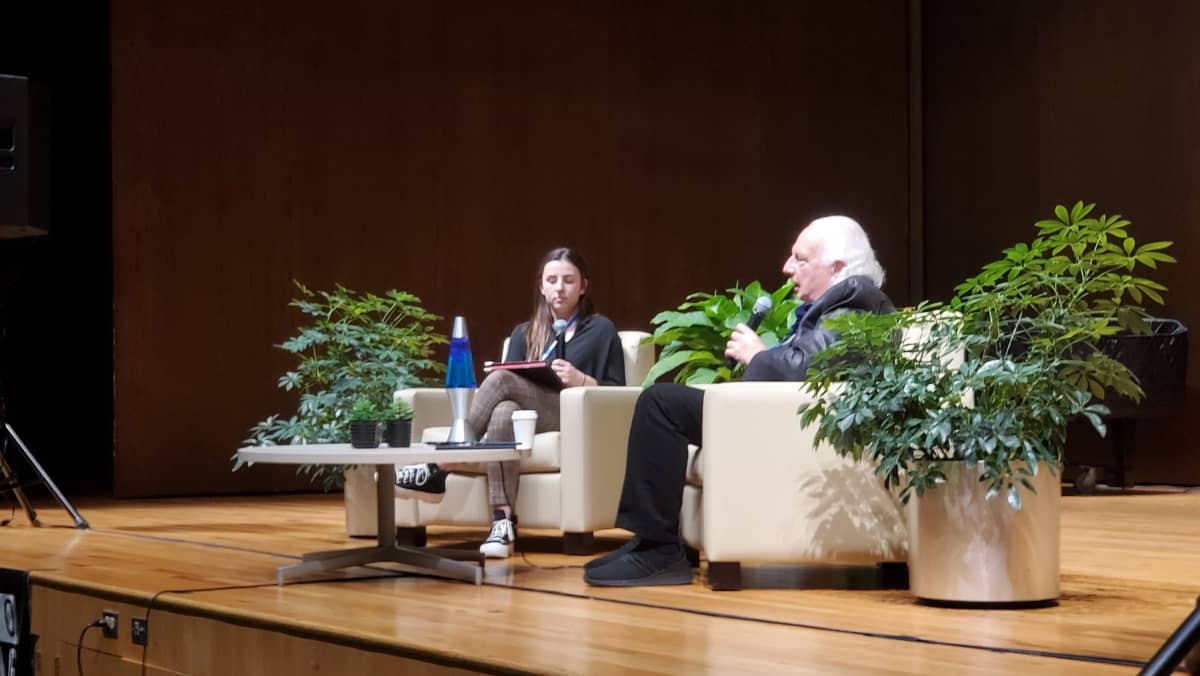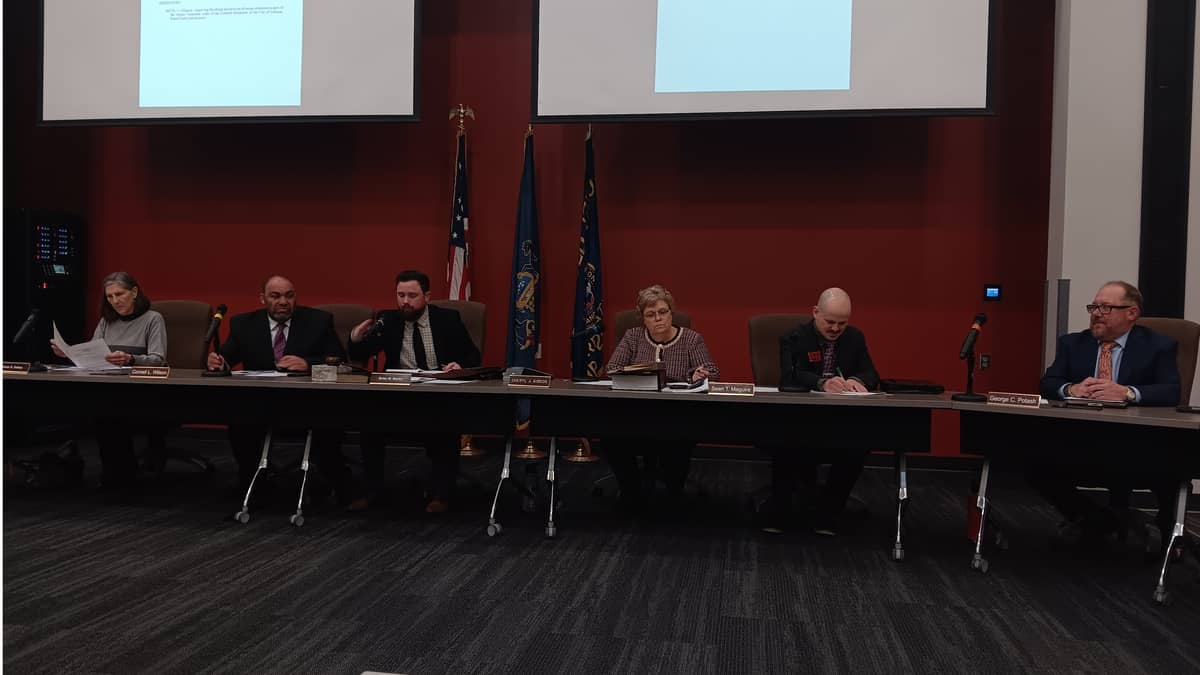While it is easy to hear a piece of music and attribute it wholly to the performing band, the truth is that a finished song has first passed through many sets of hands, each vitally important to the process.
So, while the name Shelly Yakus may not ring a bell, his work as a recording engineer can be seen in the music of renowned artists ranging from Madonna to U2.
Take John Lennon’s “Imagine.” The now-famous piece of rock ‘n’ roll history once passed through Yakus’s hands.
“A lot of songs are like this, that you hear them for the first time and it’s so new and unique sounding that you can’t really tell,” Yakus said when asked whether he knew “Imagine” would blow up the way it did. “We were so focused on just trying to do the best job we could that we weren’t thinking about, ‘Is this going to be a hit.'”
Yakus spoke at LVC’s VALE Media Industries Conference Nov. 19 to pass on advice to the younger generation.

This is not Yakus’s first time working with LVC, as he taught there as an adjunct professor from 1993 to 1998.
“I really like this school and what they do for the students,” said Yakus. “They really care about the students here, and they go out of their way to try to get the students as much information as they can to help them in their directions.”
In 2015, Yakus, received an honorary doctorate of music from LVC.
“It certainly was an honor, because there were other people that were being considered and they gave it to me,” said Yakus.
Yakus began working with music far before his career began; his father ran a recording studio in Boston which Yakus began experimenting with around age 10.
“I learned to listen at my dad’s studio,” said Yakus. “Everyone hears but not everyone listens.”
Yakus didn’t go to college, instead working as an assistant at his father’s studio. He eventually became an assistant engineer to Phil Ramone in New York. During that time Yakus worked with Frank Sinatra, Dionne Warwick, Frankie Valli & the Four Seasons, and more.
“These guys were at the top of their careers, and what I learned from them by watching them work and assisting them was reinforced over the years,” he said.
Eventually, Yakus moved up the ranks from assistant to engineer.
“People saw that I was a hard worker and I wanted to learn,” he said. “I got some help along the way; it isn’t like a classroom where they sit down with you and they say, ‘Here’s how you do it.’
“You work as an assistant engineer and you listen to what they’re doing and you have your own ideas and you put it together and become you, in this business.”
In 1999, Bono of U2 nominated Yakus to the Rock ‘n’ Roll Hall of Fame. While recording engineers are not eligible for the title, Yakus said the nomination was an honor in and of itself.
“It was a surprising thing to me — Bono’s got other things to do, he’s a pretty busy guy,” he said. “To be nominated was an honor, to be recognized in that way.”
Yakus doesn’t have a favorite artist to work with. From the relatively unknown to the superstars, he said, the creativity that links them makes all memorable to work with.
“I really love working with creative people — the effort that they put in in terms of creativity and commitment to their craft” he explained. “It’s always fun for me to work with people that really are interested in their career and want to have something turn out the best it can turn out.”
The most challenging part of the job, Yakus said, is getting the approval of all parties involved: each member of the band, the producer and the record label. The final product emerges from an elongated process of trial and error, with changes made from minor to major.
“There’s never been an easy one; they’re all difficult in creative ways,” Yakus said of making final products for different songs.
Great music, Yakus says, transports a listener out of themselves while they listen. Yakus describes his work as that of “emotional salesman.”
“If I can take what’s in the producer’s head, and the record company’s mind, and the songwriter and the leader of the band — if I can take that and get it to come out of the speaker, then we all do well,” he explained.
The work of a recording engineer, by nature, is in the background behind artists and producers. It is incredibly important, Yakus said, to know your place.
“I’ve learned, early on, that I’m not the producer and I’m not the artist,” he explained. “It’s about them, and helping them make the best production they can make.”
Yakus’ advice to those looking to pursue careers as music engineers? Start from the bottom and work up, taking whatever jobs you can find.
“Go into it with an open mind,” he said. “It’s about having the right attitude.”
Questions about this story? Suggestions for a future LebTown article? Reach our newsroom using this contact form and we’ll do our best to get back to you.

Build the future of local news.
Cancel anytime.
Monthly Subscription
🌟 Annual Subscription
- Still no paywall!
- Fewer ads
- Exclusive events and emails
- All monthly benefits
- Most popular option
- Make a bigger impact
Already a member? Log in here to hide these messages
Free local news isn’t cheap. If you value the coverage LebTown provides, help us make it sustainable. You can unlock more reporting for the community by joining as a monthly or annual member, or supporting our work with a one-time contribution. Cancel anytime.

























